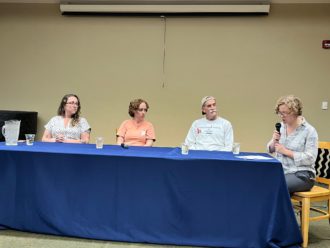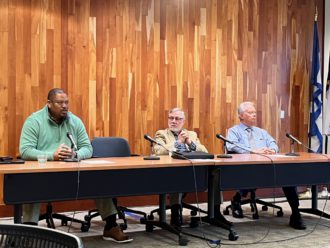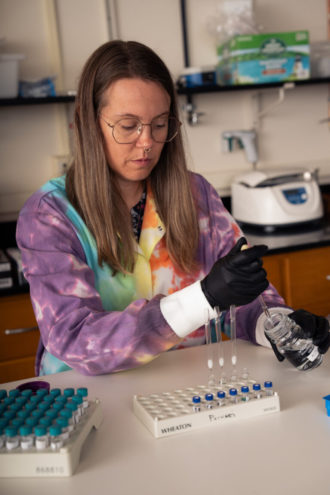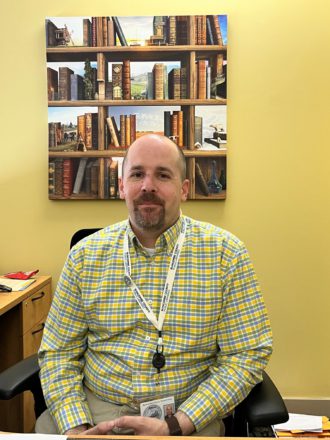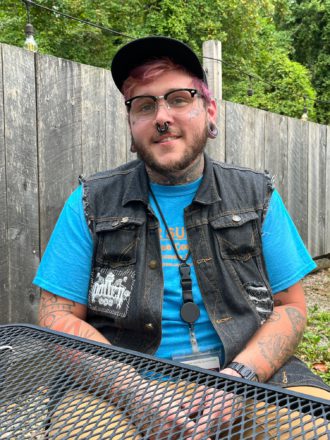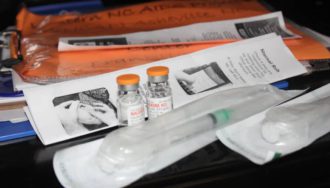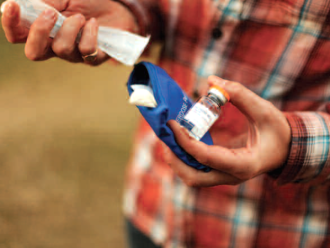“I was brought to a room at one point as a county employee, with major county and city staff, and basically told to shut up,” Amy Upham, who worked as opioid response coordinator for Buncombe County Department of Health and Human Services (BCDHHS) from 2019-21, told an audience at Pack Memorial Library last week.
